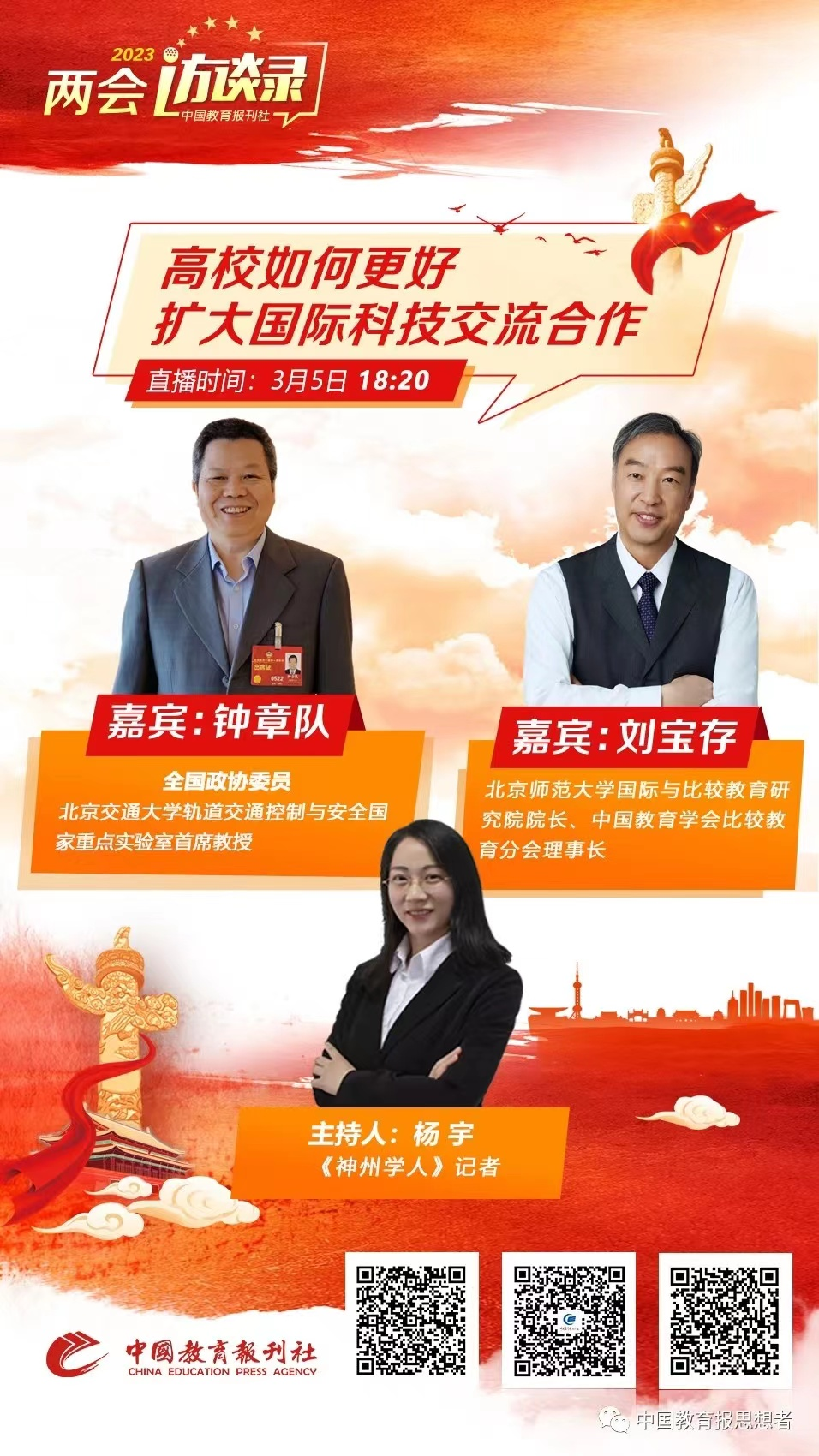On March 5, 2023, ZONG Zhangdui, the member of the National Committee of the Chinese People's Political Consultative Conference and chief professor at Beijing Jiaotong University's State Key Laboratory of Rail Transit Control and Safety, and LIU Baocun, dean of Beijing Normal University's IICE and chairman of the Chinese Education Society's Comparative Education Branch, were guests on China Education News Agency's "Two Sessions Interview".
They discussed universities' role and position in building an "open and innovative ecology", the history and new trends of international scientific and technology exchanges and cooperation in Chinese universities, international practices, the relationship between high-level scientific and technological self-sufficiency and international scientific and technology exchanges and cooperation, difficulties and suggestions for promoting universities to expand international scientific and technology exchanges and cooperation.
Professor LIU reviewed international scientific and technology exchanges and cooperation in Chinese universities since the founding of New China and used data to show universities' important role in building an "open and innovative ecology". He said policies and concepts proposed since the 18th CPC National Congress have promoted higher education and international cooperation of scientific research in China. The scope of international scientific and technology cooperation has continued to expand, and participation in global education governance and scientific and technological governance has deepened, greatly enhancing China's international influence and competitiveness.
He believes scientific and technological self-sufficiency do not exclude international exchanges and cooperation. Exchanges and cooperation are important means to achieve self-sufficiency. He suggested making top-level designs, improving relevant systems and mechanisms, fully utilizing global intellectual resources, and actively participating in global scientific and technological governance.

